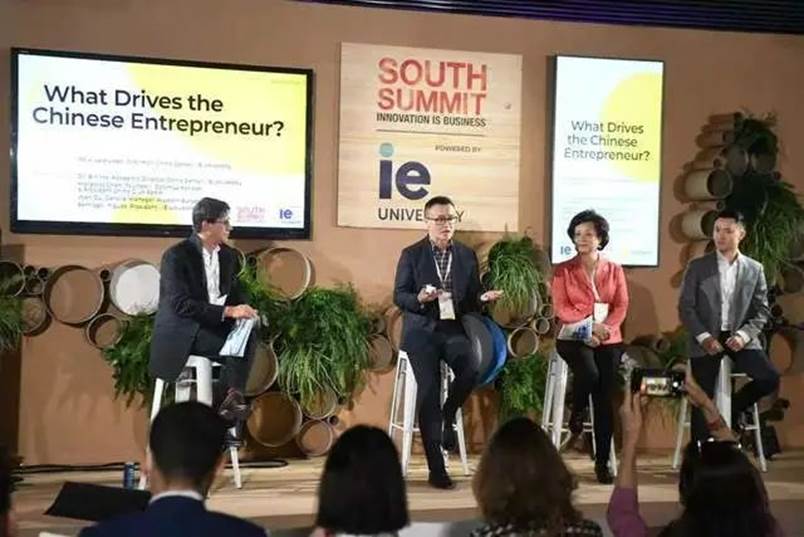Recently, the newly released 2021 Chinese Entrepreneurs Report attracted broad attention. This report was jointly published by associate professor Pan Jingzhou’s team from the College of Management and Economics (CoME), Tianjin University and IE University of Spain.
According to media platforms such as China News, China Business News and China Financial Times, the team of Associate Professor Pan Jingzhou and the IE China Center in Spain were invited to attend the 2021 South Summit held in Madrid, Spain on October 6 to release the report, “The Intangible Concept Behind a Tangible Economic Miracle” which has been widely concerned by participating experts and business people. The South Summit is one of the largest annual business management conferences in Europe, dedicated to creating a global cooperative platform for innovative entrepreneurs, international investors, start-ups, academics and large organizations. 6,800 startups and 6,700 large organizations from 124 countries have attended this summit. King Felipe VI of Spain and Prime Minister Pedro Sanchez attended and delivered speeches.

Despite the challenges posed by the COVID-19 pandemic, China remains the only major economy in the world to grow in 2020, with year-on-year growth of 18.3% in the first quarter of 2021, and a range of forecasts for full-year 2021 are above 6%. These numbers will come as no surprise to anyone familiar with the Chinese development over the past few decades. Academics have been closely examining the country's economic miracle and coming up with a range of theories from various angles that they hope will be replicated to energize the global economy.

Professor Ma Bin, academic director of the IE China Center, shared the findings of the report on behalf of the research group. He noted that IE China Center has always been focusing on the analysis of China's economic and business practice experience and rules. This time, by cooperating with Associate Professor Pan Jingzhou’s team from Tianjin University, they explore the potential factors affecting China's economic development from the perspective of the inner world of entrepreneurs, so as to enhance a better understanding of China's rapid economic growth. This research shows that there are 4 aspects consists of the calls for Chinese entrepreneurs' work: social contribution, value of life, special affection and social influence. Among them, the social contribution, as the most important dimension of Chinese entrepreneurs inner calling, plays a positive role in promoting enterprise's business performance, enterprise social responsibility(e.g.donation), internationalization and diversification. Meanwhile, realizing the value of life plays a core role in the pursuit of entrepreneurs' personal career goals. Felix Baltiviso, chairman of IE China Center, added that the report explores thestruggling spirit which pushes Chinese entrepreneurs to overcome various obstacles in enterprise development and reveals the sense of responsibility and inner calling that support themselves.

This report received widespread attention and heated discussion. Ms. Chen Hong, founding President of China Club Spain, fully affirmed its value “The report comprehensively summarizes the innovation and pioneer spirit of Chinese entrepreneurs, which is of great help for western countries to understand the rise of China, and interpret the economy, policies and future development pattern of China.”
“With this report, we tried to explore the impact of purpose and meaning of work on people's work behavior, attitude and motivation,” said co-author of the report named Pan Jingzhou, associate professor from Tianjin University CoME. “In particular, in the process of promoting common prosperity, we should guide Chinese entrepreneurs to establish a sense of mission to serve the people and contribute to society, actively participate inthe Third Distribution to creating opportunities for high-income groups and enterprises so they can give back to society, and contribute to a sustained economic growth while seeking happiness for the people."
By the College of Management and Economics
Editor:Qin Mian & Yang Fan






